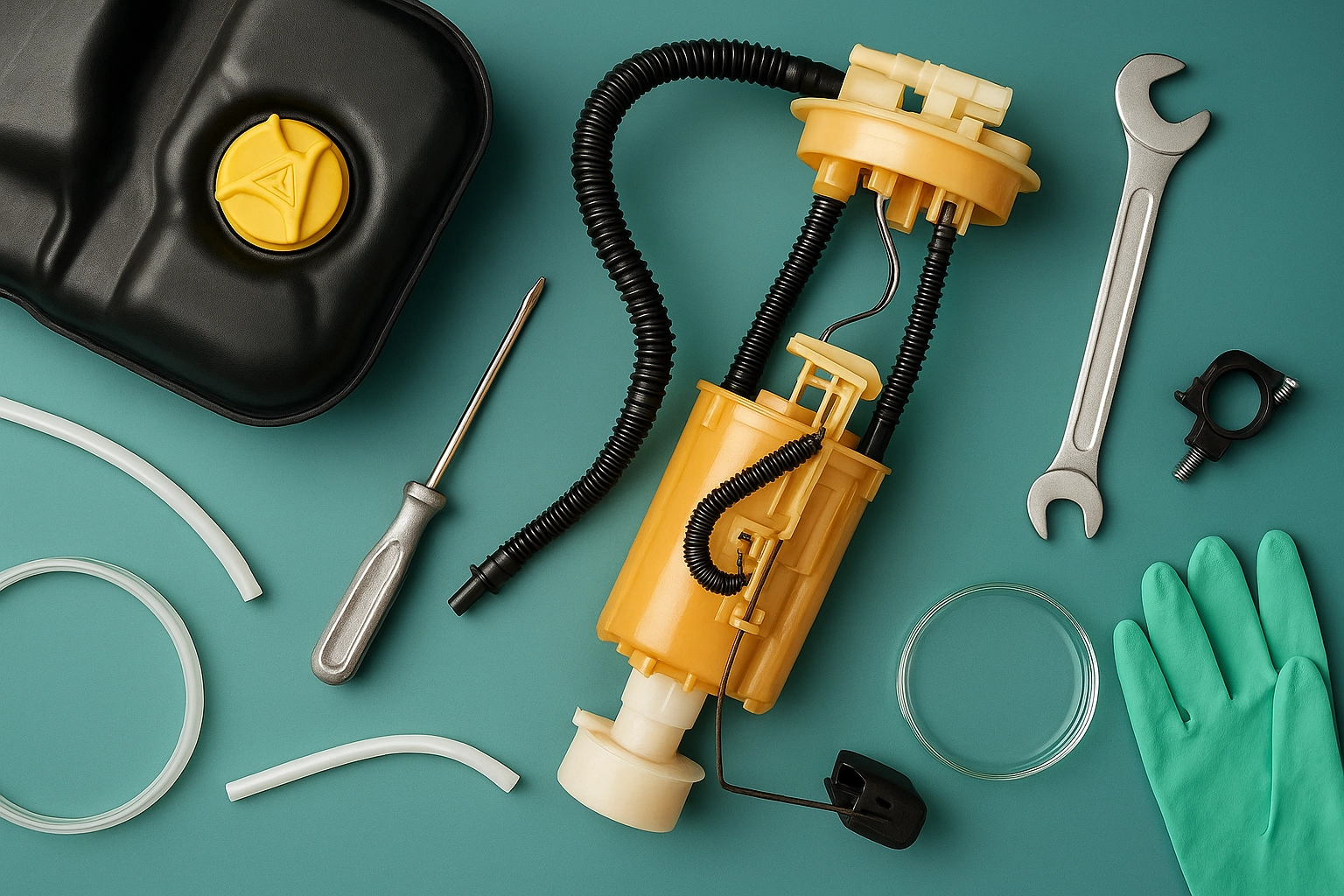Fuel Tank & Fuel System Testing
The automotive industry places significant emphasis on ensuring fuel tanks and fuel systems are reliable, safe, and comply with international standards. This section provides an in-depth overview of the testing methodologies employed to ensure these critical components meet the highest safety and performance standards.
Automotive fuel tanks and fuel systems are subjected to rigorous tests during product development to ensure they perform optimally under a variety of conditions. These tests focus on durability, leak detection, pressure resistance, and compatibility with various fuels. The testing process involves multiple stages that simulate real-world scenarios in controlled environments. Compliance with international standards such as ISO 17258 ensures product reliability.
The testing apparatus used for fuel tank and fuel system evaluation includes a range of specialized equipment designed to simulate the stresses encountered during operation. These tests are crucial in identifying potential weaknesses early in the development process, thereby reducing costly rework and improving overall product quality.
In this context, the testing encompasses several key areas:
- Leak detection: Ensuring no fuel leaks occur under various operating conditions.
- Pressure resistance: Confirming that tanks can withstand specified pressure without deformation or failure.
- Fuel compatibility: Verifying that the fuel system is compatible with different types of fuels and additives.
The acceptance criteria for these tests are stringent, ensuring that every component meets the highest standards. Compliance with international regulations guarantees safety and reliability in automotive applications.
Industry trends suggest a shift towards more sustainable materials and processes, which has influenced fuel tank design and testing methodologies. The use of lightweight, durable materials enhances vehicle performance while reducing environmental impact. Testing protocols have been adapted to accommodate these new materials and designs, ensuring they meet the necessary safety and performance benchmarks.
Industry Applications
| Application Type | Description |
|---|---|
| Vehicle Testing | Involves testing fuel tanks and systems for various vehicle models to ensure they meet safety standards. |
| Prototype Evaluation | Evaluates new designs and materials in fuel tanks and fuel systems before full-scale production. |
| Aftermarket Parts Testing | Tests replacement parts to ensure they are compatible with existing vehicle systems. |
- Variety of fuel types: Ensuring compatibility with unleaded, leaded, and biofuels.
- Environmental conditions: Testing in controlled environments that mimic real-world scenarios.
- Pressure cycles: Simulating the pressure changes experienced during operation.
The tests are designed to identify any potential issues early in the development process, ensuring a safer and more reliable product. The industry's focus on sustainability has led to a greater emphasis on testing for fuel efficiency and reducing emissions.
Environmental and Sustainability Contributions
Fuel tank and fuel system testing plays a critical role in promoting environmental sustainability within the automotive sector. By ensuring that these components are designed and manufactured to withstand rigorous operational conditions, manufacturers can significantly reduce waste and improve overall efficiency. Testing protocols are continuously updated to incorporate new materials and processes that enhance durability while minimizing environmental impact.
One of the key areas of focus is reducing fuel leakage, which can lead to significant environmental pollution if not properly managed. The testing process ensures that all components are designed to prevent leaks under extreme conditions, thereby protecting both the environment and public health.
In addition to preventing leaks, sustainable testing practices also aim to minimize resource consumption during production. By optimizing material usage and energy efficiency in testing processes, manufacturers can significantly reduce their carbon footprint. This approach not only benefits the environment but also enhances the reputation of automotive companies committed to sustainability.
The industry's commitment to environmental responsibility extends beyond individual components to include entire vehicle systems. Testing for fuel efficiency and emissions helps manufacturers design vehicles that contribute positively to global efforts to combat climate change. As regulatory standards continue to evolve, testing methodologies are adapted to ensure compliance with the latest requirements.
Competitive Advantage and Market Impact
In today's competitive market, automotive manufacturers must differentiate themselves by offering products that not only meet but exceed industry standards for safety and performance. Fuel tank and fuel system testing is a critical component of this strategy, providing a clear competitive edge in the marketplace.
By investing in comprehensive testing programs, companies can ensure their products are reliable, safe, and compliant with international regulations. This focus on quality not only enhances customer satisfaction but also builds trust among consumers who value safety and sustainability.
The results of these tests are highly regarded within the industry, offering valuable insights that inform product design and development decisions. Companies that excel in testing and certification often gain a significant market advantage, as they can demonstrate their commitment to excellence and innovation.
Moreover, compliance with stringent testing protocols allows manufacturers to enter new markets more easily, as they already meet the required standards. This reduces the time and cost associated with regulatory compliance, giving companies an additional competitive edge.





